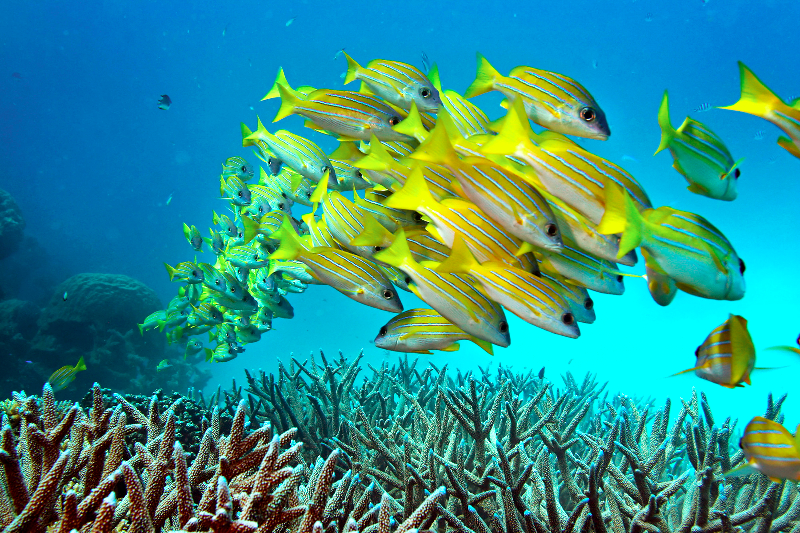Great Barrier Reef struggles to survive
The Great Barrier Reef exists off the coast of Queensland in northeastern Australia. It is visible from outer space and is the largest living thing on Earth. The reef is home to thousands of species such as fish, turtles, and sharks.
Australia is home to the largest coral reef in the world. Recent reports have stated that the Great Barrier Reef has died after remaining alive for 25 million years. The response to the reports has been widespread disbelief and surprise.
According to CNN, the Great Barrier Reef is the world’s largest coral reef ecosystem. It covers more than 300,000 square kilometers and consists of more than 3,000 reefs, 600 islands, and 300 coral cays.
“This coral reef is such a magnificent natural wonder that it must be protected. Losing such a wonder would be detrimental to history and science,” said Grace Deng, 9.
The coral reef giant is not actually dead, but it is in serious trouble. According to a report by the ARC Centre of Excellence for Coral Reef Studies, 93 percent of the reef is affected by bleaching, putting the reef in danger of extinction.
Bleaching occurs when coral are put under extreme stress due to shifts in temperature, light, or nutrients. The pressure from these conditions pushes them to release symbiotic algae from their tissues, resulting in a white coloration.
“These shifts that have been causing bleaching are due to climate change and pollution. In order to prevent this, we must be more environmentally aware,” said Lily Retford, 12.
Scientists are worried that the current state of the reef will push it over into a state that is unable to be recovered from. The effects are serious and permanent.
In addition, over the span of several decades, coral bleaching, fishing, mining, and burning fossil fuels have all contributed to the destruction of the reef.
“People need to be more aware of the harmful effects that pollutants have on the environment. Our ecosystem is constantly being mistreated due to human action, and it must be stopped,” said Deng.
While the Great Barrier Reef is still living, it is near-death. It is crucial to keep an eye on the coral in order to maintain its protection and keep it alive.
Your donation will support the student journalists of Sycamore High School. Your contribution will allow us to purchase equipment and cover our annual website hosting costs.



